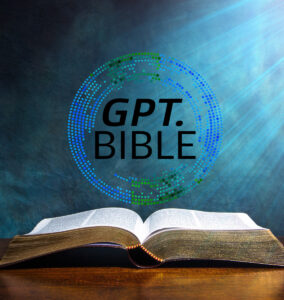Introduction
Excerpts from Theodore H. Robinson, The Gospel of Matthew, Harper and Brothers Publishers, 1927
There are two principles likely to be observed in the application of prophecy by Matthew : (a) every prediction recognized as messianic must find a corresponding event in the life of Jesus, (b) every event recorded of Jesus must have been foretold in the Old Testament, preferably in one or other of the Prophets. The gospel according to Matthew is not unique in this respect, for the others also recognize the correspondence between the expected Messiah of the Old Testament and the actual Jesus, but nowhere else is the principle carried to such lengths as here. There are even passages where we suspect that the text of his source has been deliberately modified by the evangelist in order to fit more closely the ipsissima verba of the relevant prophecy. It is also possible that his choice of material was affected by the same consideration. Probably he could not include all that to which he had access, even by abbreviating narratives, and he preferred to select events for which there was a prophecy ready to his hand… there can hardly be any doubt as to the position of this evangelist. He loses no opportunity of imparting an apocalyptic flavor to the sayings of Jesus ; the phrase, for instance, ‘There shall be weeping and gnashing of teeth ‘ is repeatedly introduced where comparison with other documents shews that it was not original, and, again, the choice of passages included is clearly influenced by the writer’s special interests. (page xi-xii)
In addition to this looser matter, in which Q (so understood) is included, it seems clear that this evangelist drew largely on a collection of Old Testament passages which were selected as being useful for apologetic purposes when arguing with Jews. Allusion has already been made to a statement attributed to Papias by Eusebius. This runs : ‘ Matthew, then, compiled the oracles (” logia “) in the Hebrew tongue. And each interpreted them as he was able ‘ (ap. Eusebius, Hist. Eccles., ill. 39)… We are left, then, with the most natural suggestion, namely, that ‘logia ‘ means the Old Testament. The work ascribed by Papias to Matthew will not have been a transcript of the whole Old Testament; that goes without saying. But it may well have been a collection of oracles ‘ dealing with the Messiah, such as might be used by the Christian to prove to the Jew that Jesus was the Christ. We know that such collections were current in the third century, and that they passed in the western church under the name of ‘ Testimonies,’ but in the Jewish church the need for them would be immediate and urgent. The best explanation of Papias’s language seems to be that Matthew prepared such a collection of ‘ Testimonies,’ using the Hebrew text, and let each person translate for himself as he had need. (page xvi-xv)
Whilst there is, of course, a great deal of Aramaic underlying our gospel, especially in the speeches and conversations, it is perfectly clear — if only from the use made of Mark — that it is not a translation from a complete Semitic original. It must have reached its present form in the Greek language. (xv)

A study of the Old Testament quotations in the gospel throws light on this remark of Papias. There are over twenty citations in those portions of Matthew which are derived from Mark, and with one possible exception (Matthew 26:31) all seem to follow the text of the LXX. An interesting case is Matthew 13:14, 15, where Mark has a loose reference, while Matthew has a complete quotation from the Greek text. Only two of these events recorded by Mark are mentioned by him as direct fulfilments of prophecy, Matthew 3:3 and Matthew 13:14, 15. Q contains barely half a dozen such quotations, and of these only those which occur in the Temptation narrative are taken from the LXX, the rest being somewhat loose references rather than direct quotations. (page xv-xvi)
Matthew inserts three quotations (all cited as fulfilled prophecy) in passages which he derives from Mark, and none of these is taken from the LXX. In Matt 8:17 and Matt 13:35 we have a completely independent rendering of the Hebrew text, and in Matt 11:5 we have a quotation which is near the LXX, but is still nearer the M.T. In passages ‘ peculiar ‘ to Matthew we have seven passages quoted as fulfilled prophecy, of which only one (Matt 1:23, emphasizing the word ‘ virgin ‘) is taken from the Greek text, and even here the wording is not identical. In the other six the quotation is either an independent translation from the M.T. or from some Hebrew text which differs from that which has become traditional. An interesting case is found in Matthew 27:9-10, which is cited as from Jeremiah, though the nearest parallel (there is no Old Testament passage with a close resemblance) is in Zechariah 11:12-13. We have thus all told a dozen passages quoted as being ‘ fulfilled ‘ in Jesus. Of these two are taken direct from Mark, and the LXX is closely followed, and in one other (possibly two others) we can observe the influence of the LXX. The rest have all been translated into Greek independently from a Hebrew text which may or may not be identical with the M.T. (page xvi)
Conflations and Misquotes of Prophecy
Matthew 1:23
“Behold, the virgin shall conceive and bear a son, and they shall call his name Immanuel” (which means, God with us). – Matthew 1:23, ESV
Matthew 2:5-6
They told him, “In Bethlehem of Judea, for so it is written by the prophet: “‘And you, O Bethlehem, in the land of Judah, are by no means least among the rulers of Judah; for from you shall come a ruler who will shepherd my people Israel.’” – Matthew 2:5-6 (ESV)
Matthew claims that Jesus’s birth in Bethlehem fulfills a prophecy from Micah 5:2. But this is unlikely for the following reasons:
- “Bethlehem Ephratah” in Micah 5:2 refers not to a town, but to a clan: the clan of Bethlehem, who was the son of Caleb’s second wife, Ephrathah (1 Chr.2:18, 2:50-52, 4:4).
- The prophecy (if that is what it is) does not refer to the Messiah, but rather to a military leader, as can be seen from verse Matt 5:6. This leader is supposed to defeat the Assyrians, which Jesus never did.
Matthew 2:15
14 And he rose and took the child and his mother by night and departed to Egypt 15 and remained there until the death of Herod. This was to fulfill what the Lord had spoken by the prophet, “Out of Egypt I called my son.” – Matthew 2:14-15 (ESV)
The author of Matthew claims that the flight of Jesus’ family to Egypt is a fulfillment of Hosea 11:1. But Hosea 11:1 is not a prophecy at all, as is clear when the entire verse is quoted (“When Israel was a child, then I loved him, and called my son out of Egypt.”). It is a reference to the Hebrew exodus from Egypt and has nothing to do with Jesus. Matthew hides this fact by quoting only the last part of the verse.
Matthew 2:17-18
16 Then Herod, when he saw that he had been tricked by the wise men, became furious, and he sent and killed all the male children in Bethlehem and in all that region who were two years old or under, according to the time that he had ascertained from the wise men. 17 Then was fulfilled what was spoken by the prophet Jeremiah: 18 “A voice was heard in Ramah, weeping and loud lamentation, Rachel weeping for her children; she refused to be comforted, because they are no more.” – Matthew 2:16-18 (ESV)
The author of Matthew quotes Jeremiah 31:15, indicating that it was a prophecy of King Herod’s alleged slaughter of the children in and around Bethlehem after the birth of Jesus. But this verse refers to the Babylonian captivity and has nothing to do with Herod’s massacre.
Matthew 2:23
23 And he went and lived in a city called Nazareth, so that what was spoken by the prophets might be fulfilled, that he would be called a Nazarene. – Matthew 2:23 (ESV)
The author indicates this was a fulfillment of prophecy, yet such a prophecy is not found anywhere in the Old Testament.
Matthew 8:17
16 That evening they brought to him many who were oppressed by demons, and he cast out the spirits with a word and healed all who were sick. 17 This was to fulfill what was spoken by the prophet Isaiah: “He took our illnesses and bore our diseases.” – Matthew 8:16-17 (ESV)
4 Surely he has borne our griefs and carried our sorrows; yet we esteemed him stricken, smitten by God, and afflicted. 5 But he was pierced for our transgressions; he was crushed for our iniquities; upon him was the chastisement that brought us peace, and with his wounds we are healed. 6 All we like sheep have gone astray; we have turned—every one—to his own way; and the LORD has laid on him the iniquity of us all. – Isaiah 53:4-6 (ESV)
Matthew 13:10-13
13 This is why I speak to them in parables, because seeing they do not see, and hearing they do not hear, nor do they understand. 14 Indeed, in their case the prophecy of Isaiah is fulfilled that says: “‘“You will indeed hear but never understand, and you will indeed see but never perceive.” – Matthew 13:13-14 (ESV)
Matthew is the only book in the NT that explicitly claims Jesus’s use of parables as the prophecy of Isaiah being fulfilled.
Matthew 13:35
34 All these things Jesus said to the crowds in parables; indeed, he said nothing to them without a parable. 35 This was to fulfill what was spoken by the prophet: “I will open my mouth in parables; I will utter what has been hidden since the foundation of the world.” – Matthew 13:34-35 (ESV)
1 Give ear, O my people, to my teaching; incline your ears to the words of my mouth! 2 I will open my mouth in a parable; I will utter dark sayings from of old, 3 things that we have heard and known, that our fathers have told us. 4 We will not hide them from their children, but tell to the coming generation the glorious deeds of the LORD, and his might, and the wonders that he has done. – Psalms 78:1-4 (ESV)
Matthew 21:4
1 Now when they drew near to Jerusalem and came to Bethphage, to the Mount of Olives, then Jesus sent two disciples, 2 saying to them, “Go into the village in front of you, and immediately you will find a donkey tied, and a colt with her. Untie them and bring them to me. 3 If anyone says anything to you, you shall say, ‘The Lord needs them,’ and he will send them at once.” 4 This took place to fulfill what was spoken by the prophet, saying, 5 “Say to the daughter of Zion, ‘Behold, your king is coming to you, humble, and mounted on a donkey, on a colt, the foal of a beast of burden.’” – Matthew 21:1-5 (ESV)
Matthew 27:9
7 So they took counsel and bought with them the potter’s field as a burial place for strangers. 8 Therefore that field has been called the Field of Blood to this day. 9 Then was fulfilled what had been spoken by the prophet Jeremiah, saying, “And they took the thirty pieces of silver, the price of him on whom a price had been set by some of the sons of Israel, 10 and they gave them for the potter’s field, as the Lord directed me.” – Matthew 27:7-10 (ESV)
12 Then I said to them, “If it seems good to you, give me my wages; but if not, keep them.” And they weighed out as my wages thirty pieces of silver. 13 Then the LORD said to me, “Throw it to the potter”—the lordly price at which I was priced by them. So I took the thirty pieces of silver and threw them into the house of the LORD, to the potter. 14 Then I broke my second staff Union, annulling the brotherhood between Judah and Israel. – Zechariah 11:12-14 (ESV)

